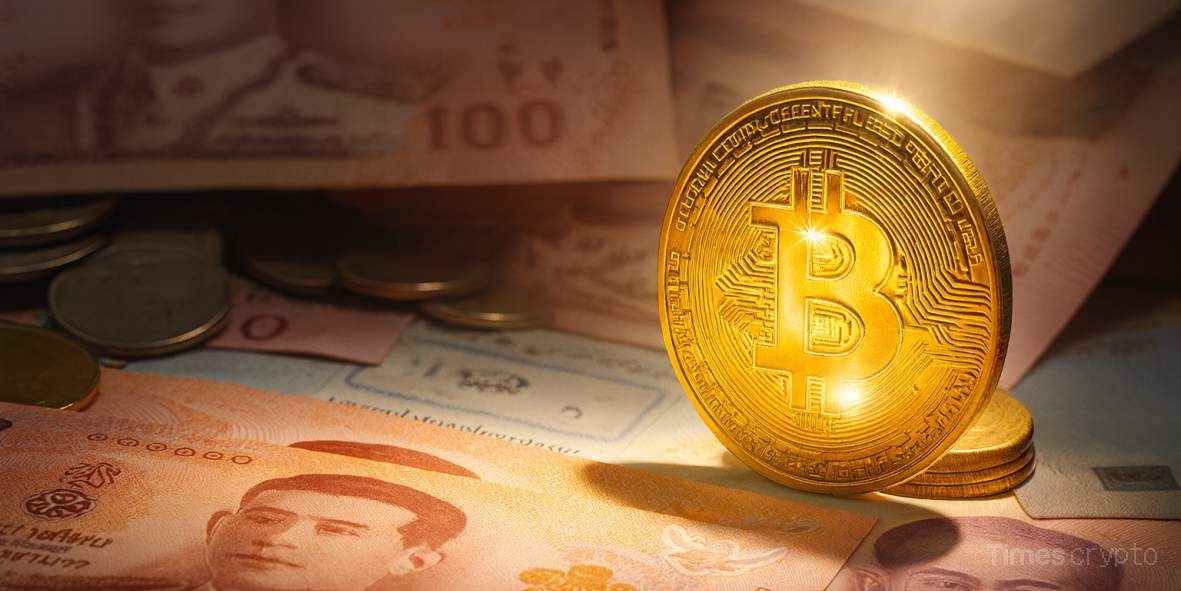Key Takeaways
- Thanks to Thailand’s TouristDigiPay initiative, you can now easily swap your Bitcoin and other cryptos for Thai baht and pay with QR codes thanks to Thailand’s TouristDigiPay initiative.
- But strict KYC checks and spending limits (500,000 baht/month) aim to balance innovation with anti-money laundering controls.
- The move targets a 24% drop in East Asian tourists, offering crypto-friendly alternatives to incentivize cash exchanges.
Table of Contents
Sun, Sand, and Satoshis: Thailand’s Crypto Tourism Play
Thailand is welcoming crypto-holding visitors with TouristDigiPay, a first-of-its-kind program that will allow visitors to convert crypto to baht at regulated exchanges. Announced by Deputy PM Pichai Chunhavajira, the implementation of the program is in direct response to declining tourist flows, especially from China, where numbers dropped 34% this year.
Here’s the kicker: Thailand allows no direct crypto payments locally; TouristDigiPay functions as a bridge. Tourists will convert their Bitcoin (BTC), Ethereum (ETH), or stablecoins to baht on platforms licensed by the Thai Securities and Exchange Commission (SEC). Then, they will take the baht and spend it electronically. Essentially, instead of cash, just scan a QR code or display it to pay at street markets, hotels, or tuk-tuks, etc.
How It Works (Without the Fine Print)
1. Sign Up: Visitors register with a crypto exchange and e-wallet provider registered in Thailand (like Bitkub or Zipmex).
2. Verify: Passport scans and facial recognition are used to verify identity per anti-money laundering (AML) requirements.
3. Spend: Convert crypto to baht in real time, and fund locked into electronic payments to avoid any cash withdrawals.
The government’s “sandbox” approach includes protections, such as a 50,000 baht limit for small vendors and no access for high-risk areas like gambling. Per Thai officials, they are not reinventing the wheel, but they are just making Thailand’s digital economy more visitor-friendly.
Why crypto? Blame the Yen (and Vietnam)
Thailand is not the only place courting crypto tourists; Bhutan is teaming up with Binance Pay for similar purposes, and in Dubai, you can now book flights with bitcoin. But for Thailand, some warning signs are clearer than those in many neighboring countries like Vietnam and Japan, where traveling there may be more favorable for budget-savvy travelers.
TouristDigiPay is also somewhat equal about consumer convenience and repositioning Thailand as the hub of tech-friendly travel in Southeast Asia. Pilot tests in Phuket saw conversion of crypto tourism among digital nomads, which is an important demographic the country is trying to grow.
A Wager Worth Taking?
While others might scrutinize crypto’s volatility, Thailand’s venture is indicative of a larger trend nowadays: like everything else, tourism is going digital. If the scheme is a success, TouristDigiPay could inspire similar programs worldwide and demonstrate that even pad thai vendors may soon prefer Satoshis over everyday weaker dollar bills.
Final Thought: After all, QR codes don’t charge exchange fees, and that’s an upside for any regular citizen.
FAQs
Can I withdraw crypto as cash in Thailand?
No. TouristDigiPay only allows electronic baht payments; no ATMs are allowed for now, just QR scans.
Which cryptos are supported?
Exchanges like Bitkub crypto exchange accept Bitcoin (BTC), Ethereum (ETH), among many others, and major stablecoins (USDT, USDC, etc.).
What happens if crypto prices crash mid-trip?
Funds are converted to baht instantly, so volatility only affects your initial exchange.
For more Southeast Asia crypto-related stories, read: Upbit Expands with Institutional Custody and Vietnam’s First Regulated Exchange







